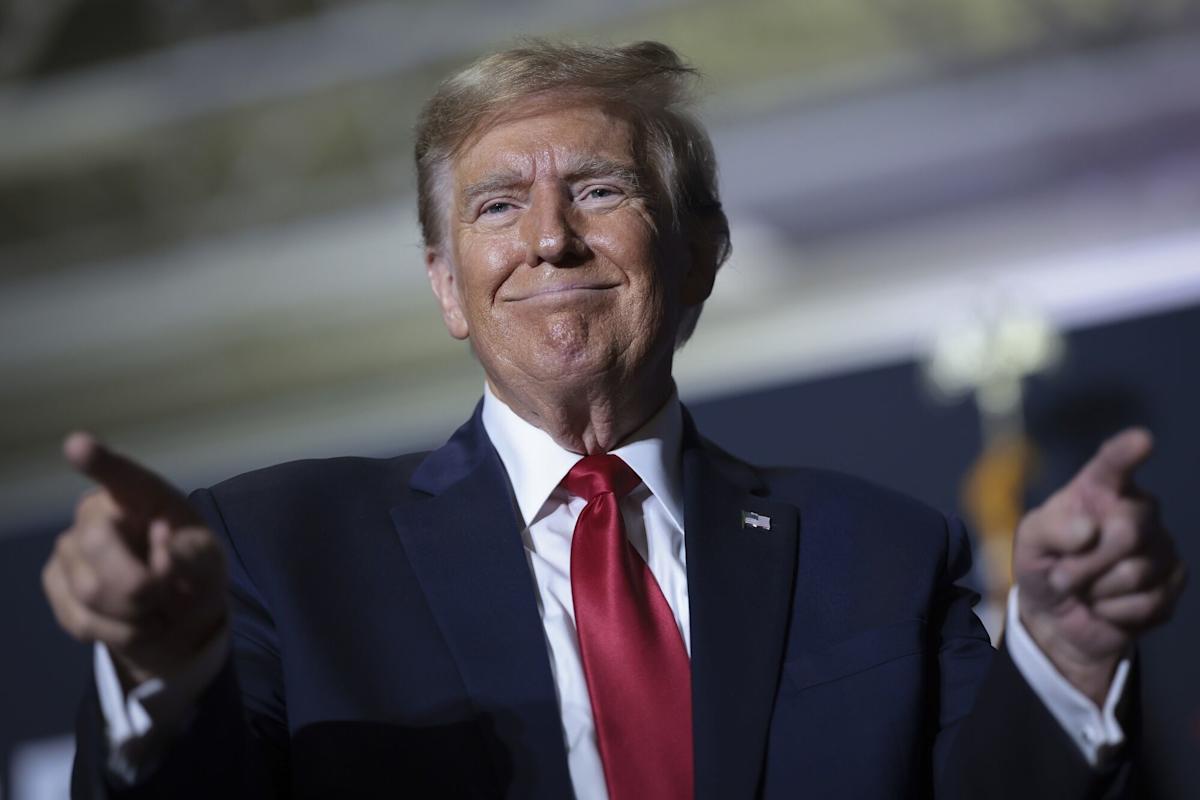(Bloomberg) — President Donald Trump is expected to announce a trade agreement with the United Kingdom at a news conference Thursday morning in Washington, according to people familiar with the matter.
Most Read from Bloomberg
Trump teased the announcement in a social media post on Wednesday night, saying he would hold an Oval Office news conference to discuss “a MAJOR TRADE DEAL WITH REPRESENTATIVES OF A BIG, AND HIGHLY RESPECTED, COUNTRY.”
Details of the agreement weren’t immediately clear. The people familiar with the plans described them on the condition of anonymity.
Trump has faced political pressure to find an off-ramp from his plan to raise US tariffs to their highest level in a century, as polls show Americans souring on his economic stewardship. Trump signaled the deal he’ll discuss would be the first of many as he looks to topple barriers to US exports and calm market turmoil driven by the sweeping scope of his tariffs.
Yet any agreement would come with significant caveats. Full-scale trade pacts typically take years to negotiate, and talks with several nations have centered around, at best, a top-line deal on commitments and intentions that may leave many details traditionally included in comprehensive trade agreements to be negotiated later.
The White House did not immediately respond to a request for comment on the country involved or scope of any potential deal. The UK embassy in Washington also did not immediately respond to a request for comment.
The White House’s public schedule for Thursday, released late Wednesday after Trump’s post, simply describes the event by saying “THE PRESIDENT makes a Trade Announcement.” The New York Times first reported it would be with the UK.
S&P 500 futures rose as much as 0.5% after Trump’s post, and the pound extended gains on reports it would be with Britain.
Trump administration officials are conducting a flurry of simultaneous negotiations with a range of countries, after the president paused sweeping tariffs on more than 50 economies that have substantial trade deficits with the US announced as part of his April 2 “Liberation Day” tariff offensive, as well as a global 10% levy applied to nearly all US trading partners. The White House has also issued sectoral tariffs including on steel and automobiles, and threatened more besides on a wide range of industries from pharmaceuticals to lumber to foreign-made movies.
Story Continues
Framework deal
Trump has offered few indications about the outlines of an acceptable trade deal, though aides have indicated that initial announcements are likely to serve as frameworks for additional negotiations down the road.
The UK and US have been in intensive discussions about an economic agreement that would reduce the impact of some tariffs, with a team of British officials in Washington to negotiate terms this week, people familiar with the matter said.
The UK’s Department for Business and Trade said earlier this week that talks were “ongoing” but that they would not “provide a running commentary on the details of live discussions or set any timelines.”
“We will continue to take a calm and steady approach to talks and aim to find a resolution to help ease the pressure on UK businesses and consumers,” the ministry said in a statement.
Britain announced a major new trade deal with India on Tuesday, the largest the UK has signed since it left the European Union, as it seeks to deepen economic ties with other nations amid the Trump tariff fallout.
Other nations with talks at high levels include Japan, India and Israel. Trump surprised Japanese negotiators by personally joining in talks last month, while Vice President JD Vance traveled to India for discussions that included trade. The US president also hosted Israeli Prime Minister Benjamin Netanyahu at the White House to talk trade issues.
While any announcement is likely to buoy markets, investors will be watching closely to see the extent to which Trump is willing to backtrack from the sweeping tariffs imposed on April 2. The US president has also repeatedly refused to say if he would be willing to negotiate tariff rates below the 10% baseline rate he imposed on nearly all nations earlier this year.
“This announcement is likely just an agreement to start the negotiations, identifying a framework of issues to be discussed in the coming months,” said Tim Brightbill, a trade attorney at Wiley Rein LLP. “We suspect that tariff rates, non-tariff barriers, and digital trade are all on the list – and there are difficult issues to address on all of these.”
And negotiations with China, the world’s second largest economy remain at a nascent stage. Treasury Secretary Scott Bessent and US Trade Representative Jamieson Greer meet this week in Switzerland with Chinese Vice Premier He Lifeng on trade, though Bessent this week framed those talks as about deescalation rather than a larger trade deal itself.
Trump said earlier Wednesday he was unwilling to preemptively lower tariffs on China in order to unlock more substantive negotiations with Beijing on trade.
“No,” Trump said Wednesday when asked by a reporter if he is open to pulling back his 145% duties on Chinese imports to get the world’s second-largest economy to the negotiating table.
–With assistance from Hadriana Lowenkron, Lianting Tu, John Harney and Meghashyam Mali.
(Updates with efforts to reach UK embassy, as well as details on trade talks, starting in sixth paragraph. A previous version incorrectly stated the date of a Trump post.)
Most Read from Bloomberg Businessweek
©2025 Bloomberg L.P.
